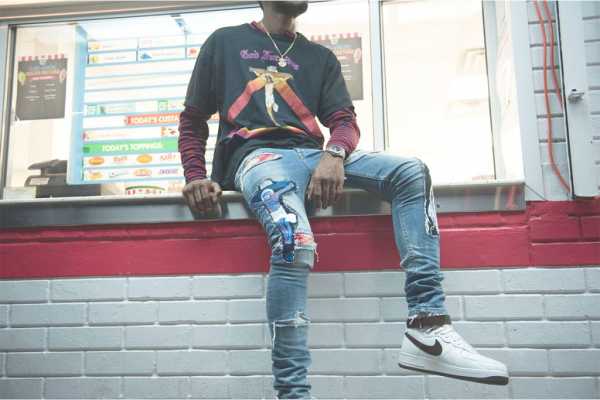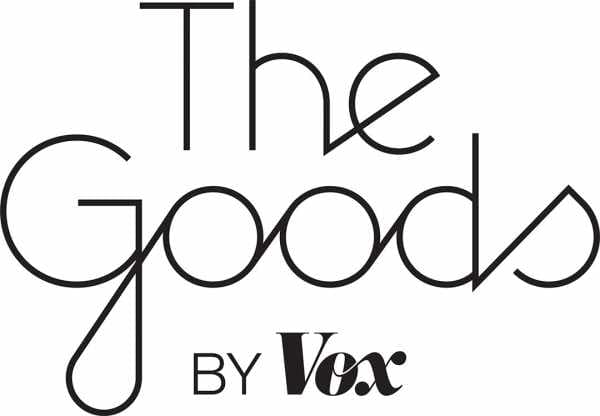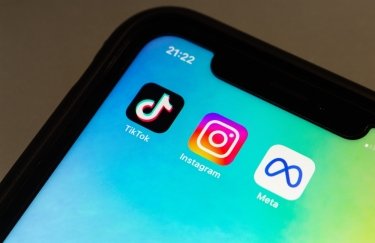

Instagram co-founders Kevin Systrom and Mike Krieger announced their departure from the company abruptly on Monday night, and nobody knows exactly why.
As reported by Recode, Systrom and Krieger left due to growing differences between their vision for Instagram and Facebook’s (which acquired the photo-sharing platform for less than $1 billion in 2012), but it’s unclear what was the straw that broke the camel’s back. The pair left so hastily that Systrom’s Wall Street Journal cover story about the future of Instagram — with him and Krieger still leading — hasn’t even hit the stands yet. They suggested in a polite resignation note that they might collaborate on something new, but gave no details.
The Verge’s Casey Newton argued that the departures mark “the end of Instagram as we know it,” writing: “Systrom and Krieger were deeply involved in day-to-day product decisions, and retained an unusual degree of autonomy over the company. For years, they were careful to the point of being obstinate.”
As Newton notes, Instagram as we know it is already very different from what it was before Facebook acquired it. It has a billion users, is now worth $100 billion, and is projected to bring in around $8 billion in ad revenue for Facebook this year. It has made popular user-facing changes like Stories and Instagram Live, and it has introduced IG TV (which reportedly caused conflict by competing with Facebook Watch) and made plans to build a standalone shopping app.
It has also been steadily tweaked to add features that drive users back to Facebook’s main app — changes that have been remarked upon by users mostly because they’re confusing and embarrassing, and which Newton cites as establishing a “death by a thousand cuts” dynamic between the image-sharing app and its parent company.
But by far the most reviled change to the platform while under Facebook’s care came in summer 2016, when Instagram abandoned the chronological feed in favor of an opaque relevance-sorting algorithm similar to the one used for Facebook’s News Feed.
For ordinary users, it was a minor annoyance that they noisily complained about, but for people who make money via Instagram — promoting art or establishing a brand or finding new clients or selling handmade goods directly — it posed a potential threat to their livelihood by making their content less likely to show up in many of their followers’ feeds.
There’s no way to know for sure that this change was pushed by Facebook leadership, though most critics and onlookers deem it likely — and there’s no way to know what Facebook might change about Instagram next. Nothing? Everything?
We spoke to 10 artists, designers, influencers, and shop runners about what they see coming. Their feelings ranged from nonchalance to “heartbreak,” but most had some sharp words about what they perceive to be Facebook’s priorities.
Kristiina Wilson (@kristiinawilson) photographer, 17.1K followers
I know, via a very good female friend who is quite high up in the Instagram corporate structure, that Instagram and Facebook are very much part of the “bro” work culture. Having heard her stories over the years, I can only hope that the founders leaving would open up spots for increased female leadership, and possibly create change in corporate culture. The battles she has to fight to be heard over the overwhelmingly white, male bias at those companies needs to change. Whether or not the founders leaving will affect that change remains to be seen, but here’s hoping!
In terms of my own work, I don’t personally care what is happening with the founders or the platform. I honestly hate that Instagram and social media are a thing I have to do to remain relevant. Posting is no longer a fun way to share images with friends, but a chore I just have to get over with. If all social media platforms went away, that would be fine with me!
Ev Bravado (@murderbravado), streetwear designer, 68.2K followers
When the founders of a company leave, it is either because 1) they are tired of doing the same thing continuously and are in dire need of a new lease on life, or 2) things are really about to hit the fan and they are jumping ship.
In this case, I hope it’s for reason one. Instagram has room to grow, but if they prioritize ad revenue over streamlining content and really listening to the user, then we are doomed. We all see the debacle Facebook has become, overflowing with ads, spam, and fake users, and oversaturated sharing led to a large number of people forsaking the platform. Instagram has evolved significantly in recent years, but its founders departing doesn’t mean that its users will too, so long as the integrity of the platform and the values of the company remain.
Kate Bingaman-Burt (@katebingburt), illustrator, teacher, 30.4K followers
The platform continues to change all the time. At first I was scared of Stories, but now it seems to be in a good groove. The biggest fear is that it becomes even more like Facebook, that when you post something, the followers and fans you may have never see what you’re sharing, even though they may want to. Even though the current algorithm is terrible, I’m expecting it to get even worse.
Rox Brown (@rox_brown), celebrity stylist, (best known for Young Thug’s Jeffrey album cover!), 94.7K followers
I think that [Instagram’s founders] may be leaving to get to the next thing. At some point, every social media platform dies down. Although I don’t think that’s anytime soon for Instagram, I think it will slow down. A lot of people are starting to take an “Instagram hiatus.”
I think it’s cool that they’re leaving. Why not? After you’ve successfully built something, why not set a new goal?
We all have multiple platforms. I’d definitely check out [the Instagram founders’ rumored] new [project]. If they helped with a brilliant app like Instagram, I’m sure the next thing will be great as well.
Cat Frazier (@itsanimatedtext), meme artist, hat designer, 70.4K followers
I think it shows that the direction of Instagram is different from what the founders originally created. I saw someone tweet that not all startup founders want to run a major business, and as a small-business owner I completely understand them leaving.
Despite a lot of complaints, I don’t see Instagram becoming the new Facebook. And the Facebook-like changes they have made on Instagram have actually helped my page grow — including the ability to upload videos, reposting through Stories, and being put on the Explore page. I’ve had my Instagram for years, and only this year, following all the changes, have I been able to grow and survive off it.
Vania Scharbach (@worksbyvania), artist and fashion designer, 5.8K followers
I do care a lot about Facebook and Instagram. I’m one of those people who really enjoys new technology and I’ve always been very into Instagram. It helped me stay in touch with lots of customers and make many sales.
“I get that the platform belongs to them, but didn’t it become interesting exactly because of so many cool creators?”
Growing up, I always wondered how I could reach a lot of people with my ideas. With social media, that’s the dream come true, right? You can reach millions of people, and whoever likes what you are showing can keep up with your creations and always see your updates. Now that’s the issue: Instagram used to be like that, but nowadays, only a small fraction of your followers get to see your post. [Note: The new algorithm does prioritize posts from a user’s friends and family over those from other accounts.] Then you don’t get enough likes, and it’s very heartbreaking for a creator. Even though you know it’s the algorithm, it still hurts.
And yes, I get that the platform belongs to them, but didn’t it become interesting exactly because of so many cool creators? I mean, on Facebook there’s so much room on the screen for ads and other stuff, but on Instagram, it’s only that one strip of images — why can’t we just see what we want instead of what they want us to see?
If I feel heartbroken by the changes, I imagine that [the founders] aren’t very happy about it either…
Jude Chao (@fiddysnails), director of marketing at Korean beauty site Beautytap, 32.4K followers
I actually had no idea, and I’ll reserve judgment until I learn more or see what happens to the platform now. Frankly, I wasn’t super happy with the changes that had been made to Instagram in the past few years anyway — like the non-chronological feed, or when they added the “online” status indicator, which I believe you currently have to opt out of. It feels a little invasive and definitely creates some guilt if I’m only popping on to post something for a minute or to answer a comment — I don’t want anyone to think I’m ignoring them! [But] to me, it could go one way or the other.
Eduardo Morales (@pinlord), Instagram strategy blogger, head of New York’s Instagram Growth Hackers group, 143K followers
I don’t lose sleep over this, but their departure probably means an even worse experience for Instagram users long term. They likely left because they either want to do something else with their lives or because they had a strong disagreement about what Facebook plans to do with the product. Either way, it’ll be a completely Facebook-driven product, and they don’t have a good track record (in my opinion) with user privacy or building a product that people love and feel good about.
Most people I know now compare the feeling of bingeing on Facebook to the feeling of bingeing on a big, greasy, gross meal at McDonald’s. Instagram is slowly but surely getting to that point, and this departure leads me to think that will come faster now that Facebook completely runs it. As you can tell, I’m pretty disillusioned with Instagram and Facebook. I think they make a lot of people’s lives less satisfying (at scale) and that bums me out.
Goth Shakira (@gothshakira), feminist meme artist, DJ, 56.6K followers
Facebook built its platform upon sharing, which is how echo chambers, fake news, and silos of people with discriminatory views have been able to flourish and feed off each other.
The beauty (and humanity) of Instagram lies in its productive tension — sharing options have distinct boundaries, and on Instagram you’re more likely than on Facebook to be exposed to organic content that you don’t like. Since human beings construct their self-concepts and identities based on what they don’t like, it’s important that we come into contact with things we don’t agree with, or that don’t resonate with us. It’s healthy and helps us retain our agency.
Facebook has indicated that they’re plugging ahead with an algorithmic model that makes it almost impossible for private users to see the organic content of other users beyond their immediate circle unless money has been put behind it. They’ve also articulated interest in applying this model to Instagram, to bring in the revenue they need to keep Facebook’s sinking platform afloat. With the departure of Instagram’s original founders, it’s worrisome that the original expertise and spirit behind the platform, along with its humanity, could have very well departed with them.
Matty Mo (@themostfamousartist), internet artist, entrepreneur, 156K followers
The platform is constantly changing. It always has and always will. Truth is, making a living selling art on Instagram now is far different than it was in 2015, when I first started. And making a living on Instagram with [direct-to-consumer] art sales will be a whole different beast in 2019 and beyond.
“I am grateful to Mark Zuckerberg for acquiring Instagram and providing it the infrastructure and resources to grow into the cultural epicenter it has become.”
[Systrom and Krieger] empowered a new class of creative entrepreneurs to thrive, independently of the gallery ecosystem. That was the real shift in culture that they created — the notion of a self-sustaining independent visual artist. I am grateful to Mark Zuckerberg for acquiring Instagram and providing it the infrastructure and resources to grow into the cultural epicenter it has become.
Nowadays, I am focusing on [my company], SelfieCircus, [which designs Instagrammable pop-up art installations for brands]. I am hanging up my Instagram “artist” hat and focusing on building a company around a trend I see broadly as a result of Instagram and selfie culture. I am optimistic about the future of arts and culture online.
As Warhol said: “Being good in business is the most fascinating kind of art. Making money is art and working is art and good business is the best art.”
Sourse: vox.com






